Ethiopia
The spokesperson for the Ethiopian Ministry of Foreign Affairs on Wednesday criticised the United States' decision to impose restrictions on economic and security assistance over the conflict in the Tigray region.
Dina Mufti says "sanctions are not necessary for the US to send its message across the country" and that it is Ethiopia that has to "deal with its internal affairs."
Tensions between Ethiopia and the United States still at an all-time high after Washington imposed restrictions due to the conflict in the Tigray region, which has killed thousands and seen more than two million flee the area.
The UN said this week 91% of people in Tigray need emergency food aid.
"The humanitarian situation is fundamentally Ethiopia's concern," Mufti said.
"It is Ethiopia that has to deal with its internal affairs and what is expected of others is actually to support Ethiopia so as to strongly deal with the situation."
The US embassy in Addis Ababa said on Wednesday the Tigray situation is deteriorating rapidly and called for an end to the fighting and humanitarian access to prevent famine.
European countries have also backed the call after the United Kingdom urged a ceasefire.
The Tigray conflict erupted in November when Abiy, the winner of the 2019 Nobel Peace Prize, sent troops to confront the leaders of Tigray's ruling party, accusing them of attacks on federal army camps.
Though he vowed the conflict would be brief, fighting continues more than six months later, and world leaders are warning of a potential humanitarian catastrophe in the northern region.
Eritrean troops, who teamed up with the Ethiopian military, have been implicated in multiple massacres and other atrocities during the Tigray conflict, allegations that Asmara denies.
Meanwhile, on Sunday Ethiopia staged a massive rally in Addis Ababa to rail against the United States imposing restrictions on economic and security assistance over the conflict in the Tigray region.
Demonstrators at the Addis Ababa rally also waved banners in support of the Grand Ethiopian Renaissance Dam (GERD), calling for the mega-project on the Blue Nile to be filled.
The GERD is a source of national pride for many Ethiopians but fiercely opposed by Egypt and Sudan, who fear their own water supplies downstream will be affected.
Ethiopia has said it will push ahead with a second phase of filling in July and August, even if no agreement has been reached with Sudan and Egypt.




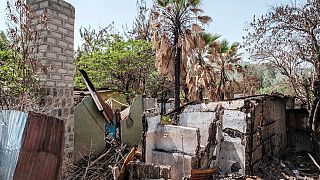
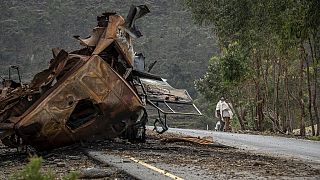
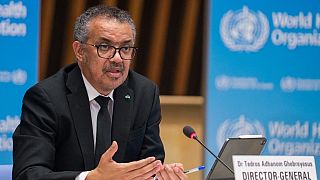
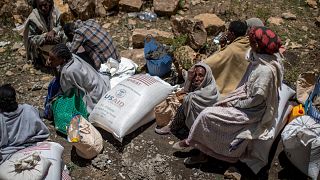
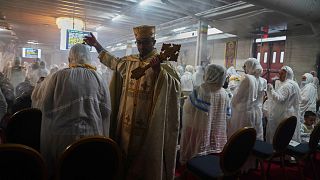
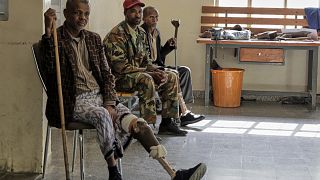



Go to video
Kenya set to surpass Ethiopia as East Africa’s largest economy in 2025 – IMF
Go to video
Sudan: Rapid Support Forces attack in western Darfur kills at least 30, according to activist group
Go to video
Ethiopians mark Easter with calls for peace and love amid ongoing conflict
Go to video
DRC: Goma Christians celebrate Easter under rebel rule
Go to video
Congo suspends Kabila's political party over rebel 'ties'
01:06
Sudan: Thousands flee, more remain trapped in RSF attack on Darfur camp